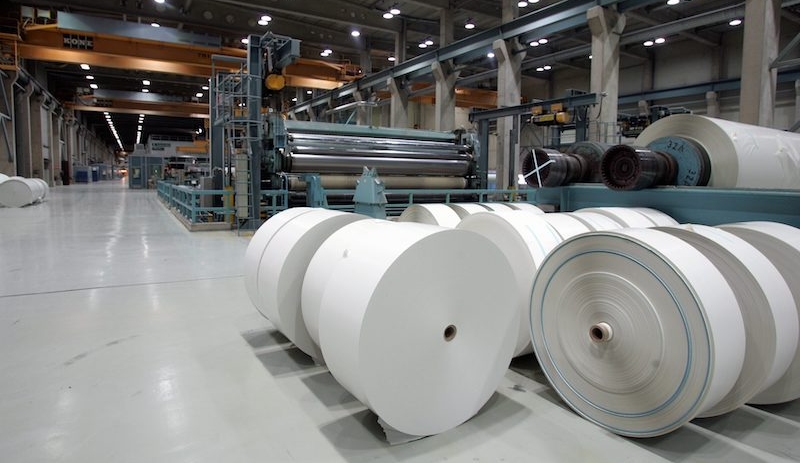|

UPM Restructuring Plans Include Closing Kaipola Paper Mill in Finland, Selling Shotton Paper Mill in Wales
Aug. 27, 2020 (Press Release) - To ensure future competitiveness of UPM Communication Papers, UPM announces plans for permanent closing of UPM Kaipola paper mill in Finland, sale of UPM Shotton paper mill in Wales (UK) and streamlining Communication Papers business function teams.
In addition, UPM Biorefining and UPM Specialty Papers announce plans for reorganising and streamlining activities in Finnish pulp mills, UPM Forest and UPM Tervasaari mill in Finland.
The planned actions would result in annual cost savings of EUR 75 million. Decisions on the final plans will be made after the co-determination procedures have been concluded.
Planned Actions in UPM Communication Papers
Continued long-term decline in graphic paper demand combined with weakened economic outlook require prompt actions to ensure performance in UPM Communication Papers. In a declining market, competitiveness in company operations as well as local operating environment is of utmost importance.
In 2020, the COVID-19 pandemic related lockdown measures have caused a short-term demand disruption in the graphic paper market. While there are early signs of normalisation in paper demand after lockdowns, the ensuing economic outlook has deteriorated globally.
UPM is committed to maintaining competitive operations under all circumstances. It means adapting capacity to customer demand and increasing the efficiency of operations. Consequently, UPM Communication Papers plans to permanently close its Kaipola mill in Finland latest by the end of 2020. The planned closure of UPM Kaipola's three paper machines would impact approximately 450 positions and lead to a permanent reduction of 720,000 tonnes of graphic paper capacity, thereof 450,000 tonnes of newsprint and 270,000 tonnes of coated mechanical paper.
"This is devastating news to Kaipola. While Kaipola has competent teams and well operated machines, external factors such as high logistics costs, regulatory and tax burden, high cost of labour and increasing fibre costs make it the least competitive among UPM's paper mills," says Winfried Schaur, Executive Vice President of UPM Communication Paper.
Further, UPM Communication Papers plans to reorganise and streamline its business function teams across Europe and North America. These plans would affect approximately 170 positions in more than 10 countries.
"We in UPM are very committed to the paper business and to serving our customers. With our assets, people and strategy, we are confident that we can run a profitable business for years to come. It is good to bear in mind that the world markets for graphic papers still exceed 70 million tonnes, whereof more than 20 million tonnes in Europe. Even if declining, these markets offer profitable business and good cash flow for mills with a competitive cost structure."
"In a mature business, it needs relentless efforts to look after cost competitiveness and to make sure that our assets are in efficient use in all circumstances. Also, the operating environment does have a significant impact on the future success of each operating location. Long-term predictability of the regulatory environment is elemental to attracting investment and maintaining jobs," says Schaur.
UPM also announces its intention to sell its UPM Shotton paper mill for conversion purposes. Current production capacity of the mill is 250 000 tonnes of newsprint in Deeside, Wales. The mill assets include the materials recollection and recycling facility, deinking plant, paper machine line and energy infrastructure as well as established access to the UK recycled paper market.
"UPM Shotton is well positioned to serve the UK market. However, we look for outside opportunities for alternative long-term use of the mill as the newsprint consumption continues to decline. The paper machine is technically flexible to support conversion especially into containerboard production," says Schaur.
Planned Actions in UPM Biorefining and UPM Specialty Papers
To strengthen the competitiveness and long-term performance of its businesses, UPM Biorefining aims to further increase the efficiency of its pulp and forest operations in Finland. The planned measures focus on streamlining the operating model, optimising the cost-structure and advancing digitalisation.
UPM will begin employee consultation process at its Kymi, Kaukas and Pietarsaari pulp mills regarding planned changes in the mill and support organisation. The planned changes aim to increase flexibility and efficiency in the areas of mill maintenance, production and administration. At most, these plans would lead to a reduction of 110 positions.
In the Finnish forest organisation, the planned measures focus on improving cost-efficiency by streamlining the organisation and increasing the use of digital systems and services. The plans would affect maximum 60 positions.
UPM Specialty Papers plans to reorganise and optimise the cost structure at the UPM Tervasaari mill, Finland to improve competitiveness. The planned measures would impact approximately 50 positions at the mill.
Financial Impact
In total, the plans announced today are estimated to impact approximately 840 positions, most of which are based in Finland.
UPM will recognise restructuring charges of approximately EUR 115 million (EUR 55 million cash impact and EUR 60 million as write-offs) as items affecting comparability in its Q3 2020 results, mainly related to the planned actions in UPM Communication Papers. The planned actions would result in total annual cost savings of approximately EUR 75 million.
UPM has earlier this year announced the closure of Chapelle paper mill in France, Jyväskylä plywood mill and streamlining in UPM Raflatac. These actions result in annual cost savings of approximately EUR 45 million.
UPM has a strong track record of continuous improvement in cost efficiency and the company will continue to implement measures to decrease fixed and variable costs in all businesses and functions, as needed.
SOURCE: UPM |